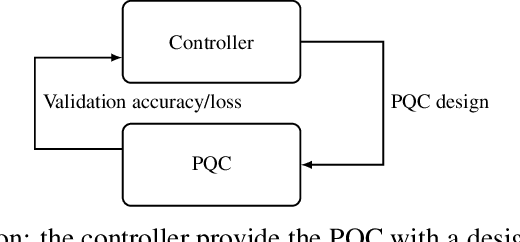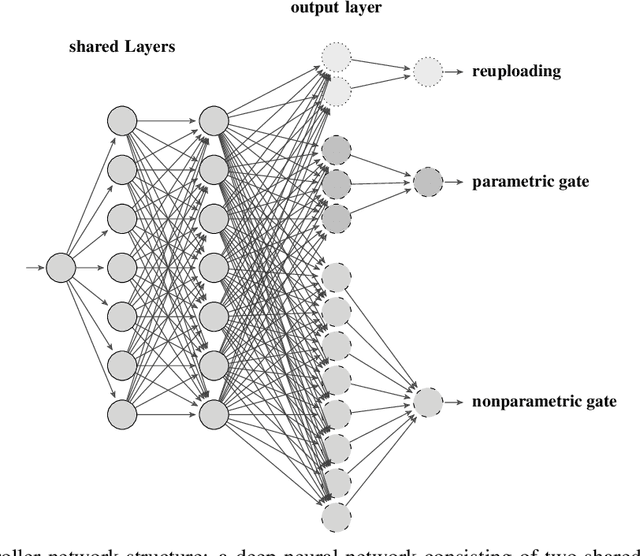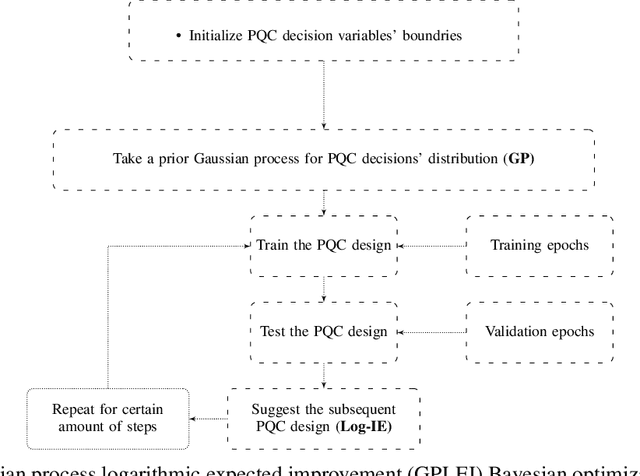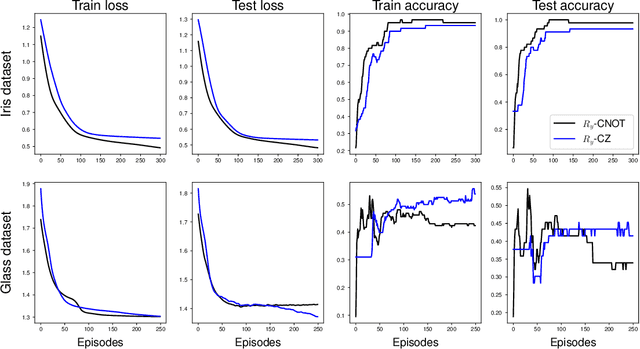Quantum Circuit Design Search
Paper and Code
Jan 04, 2021



This article explores search strategies for the design of parameterized quantum circuits. We propose several optimization approaches including random search plus survival of the fittest, reinforcement learning both with classical and hybrid quantum classical controllers and Bayesian optimization as decision makers to design a quantum circuit in an automated way for a specific task such as multi-labeled classification over a dataset. We introduce nontrivial circuit architectures that are arduous to be hand-designed and efficient in terms of trainability. In addition, we introduce reuploading of initial data into quantum circuits as an option to find more general designs. We numerically show that some of the suggested architectures for the Iris dataset accomplish better results compared to the established parameterized quantum circuit designs in the literature. In addition, we investigate the trainability of these structures on the unseen dataset Glass. We report meaningful advantages over the benchmarks for the classification of the Glass dataset which supports the fact that the suggested designs are inherently more trainable.
 Add to Chrome
Add to Chrome Add to Firefox
Add to Firefox Add to Edge
Add to Edge